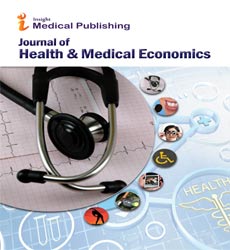Abstract
Mother's Knowledge and Attitude Towards Complementary Feeding Practices at the South-Western Region of Bangladesh
Background: In developing countries like Bangladesh, limited knowledge of mothers on Complementary Feeding (CF) practices lead malnutrition among under two years old babies which hamper their proper physical and mental growth. Objective: This study was designed to assess the knowledge and attitude of mothers towards complementary feeding practices. Materials and methods: This descriptive and exploratory study was conducted from August 2019 to February 2020. A total number of 400 children less than 24 months of age were studied using a standard pretested and pre-validated questionnaire. Purposing sampling method was used to collect data from Jashore Child Hospital, Bangladesh (The south-western region of Bangladesh). Collected data were analyzed by using computerized methods of analysis (SPSS version 16 and Microsoft Office Excel). Result: Among the selected sample of 400 babies, 52.5% were female & 47.5% were male. About 95% mothers started complementary feeding timely at 6 completed months of age and about only 5% mothers started early before 6 months. Most common complementary foods were carbohydrate rich cooked suji, barley , powdered milk and sugar. Only 15% mother gave khichuri as a complementary food. Bottle feeding was still higher and it was 36% cases. Mother’s knowledge about importance of hygiene in complementary feeding was satisfied. About 70% mothers think that baby’s immune system is less developed, so they attack by infection and 30% mothers believe babies are vulnerable to infection. The type of hygiene followed by the mothers were wash hands before preparing meals for the baby maintained by 50%, 2% mothers wash floor, kitchen area with hot, soapy water and 48% mothers wash babies hand when they eat by himself/herself. Some complications of infants were reported who had been given complementary food before 6 months. About 10% babies were suffered from fever, 35.8% babies were suffered digestion problem and 54.2% didn’t suffer any complication. We also found that most of the mothers like to give fresh cooked foods to the babies, only 10% mothers like to keep baby foods in refrigerator. Conclusion: This study showed that the trend of complementary feeding is changing positively. But still all those practices should be improved. Problems observed due to poor knowledge on feeding practices and low education and socio-economic level of mothers. There is the need to promote optimal feeding practices among mothers through different approaches like awareness build, demonstration and build consciousness.
Author(s):
Syeda Farhana Naznin and Mohammad Tanvir Sarwar
Abstract | PDF
Share this

Google scholar citation report
Citations : 210
Journal of Health & Medical Economics received 210 citations as per google scholar report
Abstracted/Indexed in
- Google Scholar
- China National Knowledge Infrastructure (CNKI)
- WorldCat
- Geneva Foundation for Medical Education and Research
Open Access Journals
- Aquaculture & Veterinary Science
- Chemistry & Chemical Sciences
- Clinical Sciences
- Engineering
- General Science
- Genetics & Molecular Biology
- Health Care & Nursing
- Immunology & Microbiology
- Materials Science
- Mathematics & Physics
- Medical Sciences
- Neurology & Psychiatry
- Oncology & Cancer Science
- Pharmaceutical Sciences

